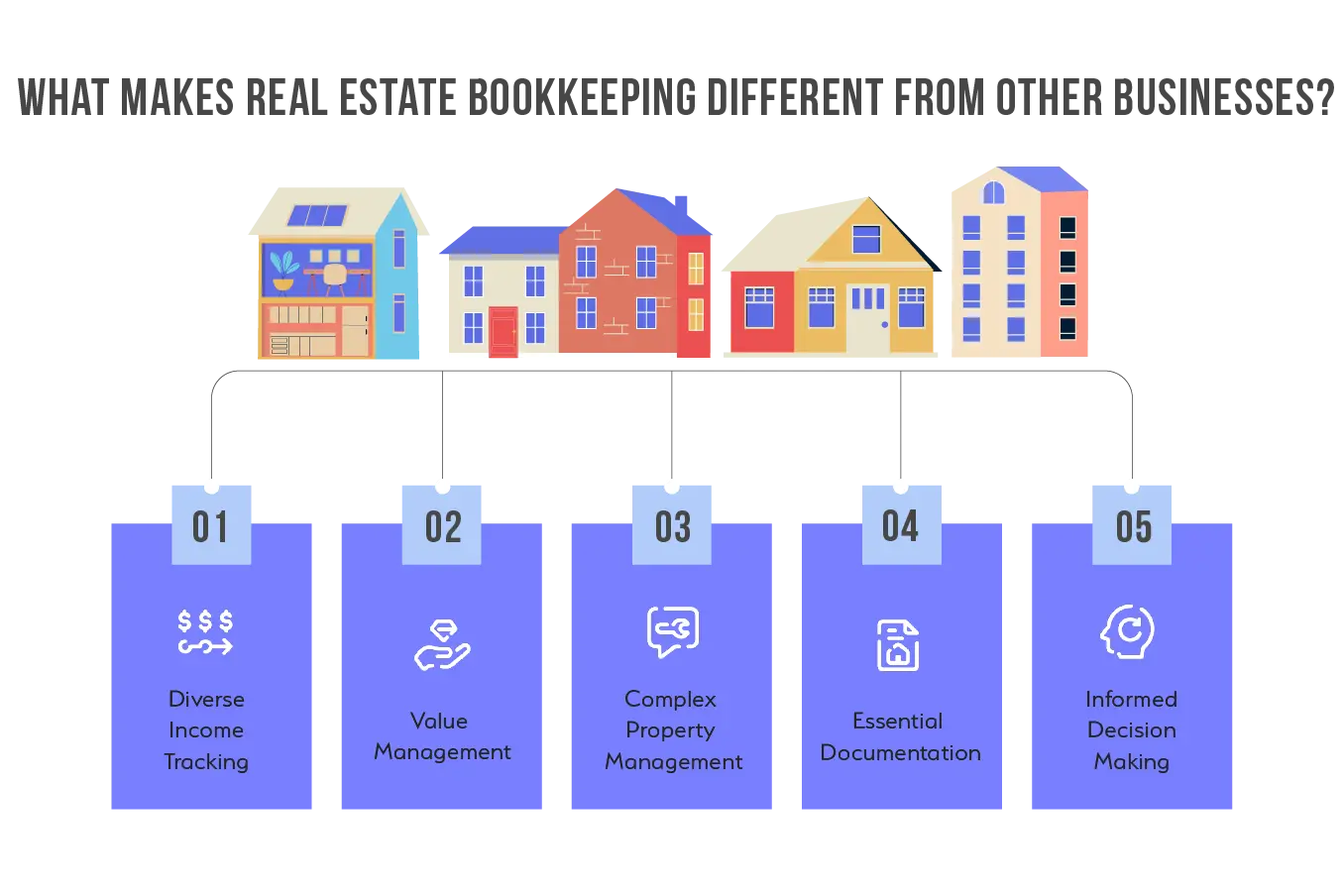How to Choose the Right Real Estate Accountants to Grow Your Portfolio
Wiki Article
Navigating the Challenges of Building And Construction Accountancy in the Construction & Realty Field
The construction and real estate industries existing special economic challenges that require a nuanced understanding of accountancy practices. The landscape stays laden with intricacies that can restrain job success and monetary health.
Distinct Financial Challenges
In the realm of building audit, unique monetary difficulties often develop due to the industry's fundamental intricacies. One famous difficulty is the monitoring of cash flow, which is typically unforeseeable as a result of the intermittent nature of construction tasks. Delays in job completion can result in pay scarcities, affecting the capacity to pay subcontractors and vendors on time.Additionally, the occurrence of modification orders complicates monetary forecasting. These modifications, which can develop from style adjustments or unpredicted website conditions, may dramatically impact timelines and budget plans (Real Estate Tax Services). Accurately tracking these changes while keeping transparency with stakeholders is critical
An additional challenge is the need for precise work setting you back. Each job involves multiple costs, consisting of labor, materials, and overhanging, which need to be diligently alloted to make sure success. Mismanagement in this area can cause expense overruns or losses.
Value of Accurate Budgeting
Precise budgeting works as the foundation of successful construction tasks, directly affecting a firm's financial health and wellness and job feasibility. In the construction and realty sectors, specific budget formula is critical, as it determines the allocation of sources, labor, and products (Construction Accounting). A well-structured spending plan allows project managers to forecast costs properly and established practical timelines, making certain that projects stay on course and within economic restrictionsMoreover, accurate budgeting cultivates accountability and transparency among stakeholders. By providing a clear monetary roadmap, it aids to alleviate dangers related to price overruns and unexpected expenses. Building companies that focus on budgeting can much better discuss contracts, take care of subcontractor payments, and stay clear of disputes over monetary discrepancies.
Additionally, a dependable spending plan assists in effective decision-making, enabling firms to pivot and adapt to unforeseen challenges, such as changing material expenses or regulative adjustments. Ultimately, the importance of accurate budgeting can not be overstated; it not only sustains the successful implementation of private tasks yet additionally adds to the long-lasting sustainability and growth of construction firms in an open market.
Capital Administration Strategies
Reliable capital monitoring is essential for keeping the economic security of building and construction projects, especially following the facility of a solid budget plan. Building and construction firms should implement techniques that make sure the timely inflow and outflow of cash, hence avoiding liquidity problems that can impede job progression.One effective approach is to develop an organized invoicing procedure that aligns with task turning points. Real Estate Tax Services. By releasing invoices quickly upon conclusion of key stages, companies can speed up money inflows. Furthermore, offering early settlement discounts can incentivize customers to settle expenses quicker, boosting cash circulation
Another important method is to carefully keep track of accounts receivable and payable. On a regular basis examining outstanding invoices allows companies to determine and address possible delays in payments, while critical management of payables can help expand money schedule without jeopardizing relationships with vendors.
Using cash circulation forecasting devices can provide understandings into future cash money requirements, permitting firms to make enlightened financial choices and reduce threats connected with cash money lacks. Via these methods, construction business can browse cash circulation challenges successfully.
Compliance and Regulatory Issues
Numerous conformity and governing issues can significantly affect the building and construction market, demanding mindful navigation to stay clear of costly penalties and job hold-ups. Construction firms have to adhere to a myriad of guidelines at neighborhood, state, and government levels, including structure codes, labor regulations, and environmental policies. Failing to abide can result in fines, job closures, or lawful disputes.Licensing and permit requirements are essential aspects of compliance. Contractors need to make certain that all necessary permits are obtained and that workers hold the appropriate licenses. Non-compliance in this location can bring about substantial hold-ups and boosted prices.
In addition, adherence to safety policies, such as those laid out by the Occupational Safety and Health And Wellness Management (OSHA), is extremely important. An absence of conformity can not just threaten employee safety and security yet additionally reveal firms to responsibility and reputational damages.
Ecological regulations also play a vital duty, specifically worrying waste disposal and website removal. Firms have to have methods in area to keep an eye on and handle their ecological effect successfully.

Finest Practices for Building Accountancy
Browsing the complexities of compliance and governing concerns in the building and construction sector emphasizes the relevance of audio economic monitoring methods. To accomplish effective construction accounting, companies should apply numerous finest practices that enhance accuracy, openness, and performance.First of all, embracing a robust work costing system is vital. This enables thorough monitoring of expenses connected to each job, helping with better budget monitoring and revenue analysis. Precise and timely billing is vital. Implementing development payment can assist maintain cash circulation and decrease the threat of conflicts with customers.
Additionally, routine settlement of accounts is vital to make sure that economic records line up with financial institution statements and task costs. Making use of specific construction accounting software program can enhance these processes, enhancing data precision and availability.

Moreover, keeping thorough documents of agreements, modification orders, and communication will certainly assist in conformity and act as a recommendation during audits. Investing in continuous training for accounting team on Construction CPA Accounting Firm industry-specific regulations and accounting standards will enhance overall financial management abilities.
Conclusion
To conclude, navigating the intricacies of building and construction audit requires a detailed understanding of special financial challenges, stressing the relevance of precise budgeting and efficient capital management. Adherence to compliance and regulatory demands is critical to mitigate dangers connected with job adjustments. Applying ideal methods in building and construction accountancy enhances economic transparency and functional integrity, inevitably supporting the sustainability and stability of jobs within the construction and realty industry.
Report this wiki page